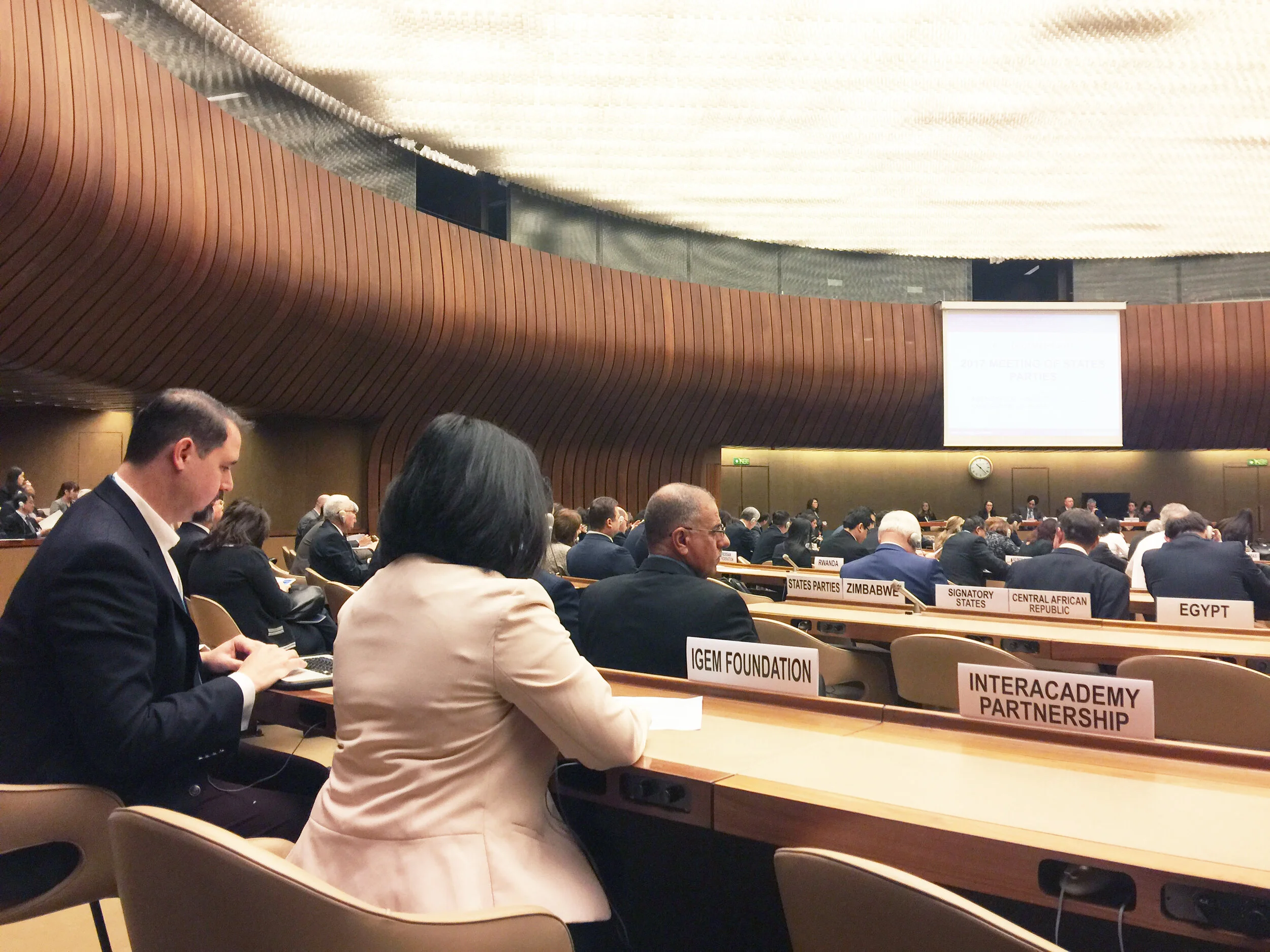Tackling Global Challenges: iGEM and COVID-19
by Linda Kahl
It’s been over a year since the World Health Organization officially declared that COVID-19 was a global pandemic. At that time, we were uncertain whether iGEM 2020 would even take place. Thanks to the dedication of the iGEM community and the resilience of the teams, iGEM 2020 became one of the most amazing seasons, bringing with it new approaches and technologies for making iGEM accessible to everyone, everywhere.
At this time, we’d like to mark one-year of COVID-19 by highlighting the accomplishments of the iGEM 2020 teams tackling the COVID-19 global pandemic with synthetic biology.
Harvard (United States) created a proof-of-concept for a COVID-19 therapeutic that couples machine learning and DNA origami, and can be extended to other emerging diseases. Nominee, Best Model, Undergrad Division.
Leiden (Netherlands) constructed a modular technology – Rapidemic – to rapidly detect pathogenic species in future outbreaks. Grand Prize Winner, Overgrad Division.
NEU_CHINA (China) rebuilt an engineered bacterium to effectively recognize SARS-CoV-2, the causative agent of COVID-19. Nominee, Best Diagnostics Project, Undergrad Division.
PYMS_GZ_China (China) engineered a pseudovirus as a safe alternative to identify the infectivity of current and future SARS-CoV-2 strains. Winner, Inclusivity Award, High School Division.
Stanford (United States) designed a live cell diagnostic for COVID-19 that could be grown anywhere around the world, and would not require special expertise or equipment to administer or read. Nominee, Best Diagnostics Project, Overgrad Division.
TAS_Taipei (Taiwan) developed a quick, accurate, home-detection kit for SARS-CoV-2, influenza and other viruses. Grand Prize Winner, High School Division.
Technion-Israel (Israel) created ACT – Anti COVID-19 Technology – a hydrogel-based skin-screen containing proteins that act as “decoy proteins” to block infection of host cells by the SARS-CoV-2 virus. Nominee, Inclusivity Award, Overgrad Division.
William_and_Mary (United States) engineered TheraPUFA, a smart probiotic that can sense and suppress excess inflammation. Winner, Best Therapeutics Project, Undergrad Division.
ZJUT_China_B (China) designed Multivirus Monitor, a multi-virus detecting device that combines sample processing, amplification and detection chambers for rapid point-of-care diagnostics. Nominee, Best Hardware, Undergrad Division.
The COVID-19 global pandemic was also the focus for the projects of these iGEM 2020 teams:
Diagnostics: BIT (China, Silver Medalist), ECUST_China (China, Bronze Medalist), Purdue (United States), UMaryland (United States, Bronze Medalist), UTTyler (United States).
Prevention: NYMU-Taipei (Taiwan, Gold Medalist).
Therapeutics: AUC-EGYPT (Egypt, Silver Medalist), MIT (United States, Silver Medalist), UIUC_Illinois (United States, Silver Medalist).
We are amazed by the advances made by all of the iGEM 2020 teams in the face of a global pandemic. As we begin the next iGEM season, we anticipate the iGEM 2021 teams will continue to amaze us as they push the boundaries of synthetic biology to solve local problems and tackle global challenges.
Registration for the 2021 iGEM Competition is now open: 2021.igem.org
Teams in the 2021 iGEM Competition are reminded to review the Safety and Security Rules and Policies before planning any work around SARS-CoV-2 and COVID-19.








